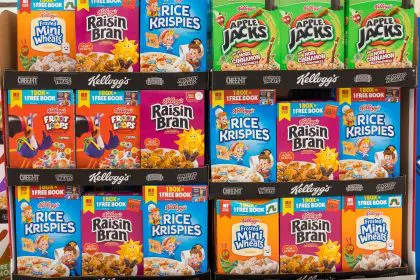The landscape of passive income opportunities has shifted dramatically in recent years, with vending machines emerging as an unexpected frontrunner in the entrepreneurial space. This transformation goes beyond traditional snack dispensers, representing a sophisticated approach to automated retail that combines technology with consumer convenience.
The convenience economy drives growth
The surge in vending machine investments directly correlates with evolving consumer behaviors and workplace patterns. As traditional work hours blur and the demand for 24/7 access to products increases, vending machines fill a crucial market gap. These automated retailers serve consumers around the clock, meeting the growing expectation for immediate access to goods and services.
The accessibility factor particularly resonates in urban centers and institutional settings, where traditional retail outlets might be impractical or cost-prohibitive. This shift has created opportunities for entrepreneurs to serve previously untapped markets.
Understanding the investment landscape
The vending machine industry presents a unique combination of low entry barriers and scalable returns. Initial investments can range from basic snack dispensers to sophisticated machines that offer premium products, allowing entrepreneurs to start small and expand methodically.
Key advantages of vending machine ownership:
- Minimal initial capital requirement compared to traditional retail
- Flexible scaling options based on performance and market demand
- Ability to test different locations and product mixes
- Low overhead costs and operational expenses
Product customization and market adaptation
Modern vending machines have evolved beyond candy bars and sodas. Today’s successful operators analyze their locations carefully, offering products that match specific demographic needs:
- Premium beverages and organic snacks for health-conscious locations
- Electronics accessories in transportation hubs
- Personal care items in hotels and gyms
- Fresh food options in office buildings
This adaptability allows operators to maximize profitability by aligning their product mix with local demand patterns and premium pricing opportunities.
Technology integration and operational efficiency
The integration of smart technology has revolutionized vending machine operations. Modern machines feature:
- Real-time inventory tracking systems
- Remote monitoring capabilities
- Digital payment processing
- Data analytics for consumer behavior
These technological advancements have transformed what was once a purely mechanical business into a data-driven operation. Operators can now monitor sales patterns, adjust pricing strategies, and optimize restocking schedules from their smartphones, significantly reducing the time investment required for maintenance.
Location strategy and market penetration
Success in the vending machine business heavily depends on strategic placement. High-traffic areas with limited retail competition offer the best potential for consistent sales. Optimal locations typically include:
- Office complexes and business parks
- Educational institutions
- Healthcare facilities
- Transportation hubs
- Fitness centers
- Manufacturing facilities
The key is identifying locations where convenience and necessity intersect, creating natural demand for easily accessible products.
Building a sustainable operation
While vending machines offer passive income potential, success requires a systematic approach to operations. Successful operators typically follow these practices:
- Regular maintenance and cleaning schedules
- Consistent quality control of inventory
- Strategic relationships with property managers
- Ongoing analysis of sales data
- Adaptation to seasonal demand changes
This structured approach helps ensure long-term profitability and sustainable growth of the operation.
Future growth potential
The vending machine industry continues to evolve with technological advancements and changing consumer preferences. New opportunities are emerging in specialized markets:
- Fresh food vending for health-conscious consumers
- Eco-friendly product dispensers
- Smart vending systems with AI-driven inventory management
- Custom-order machines with on-demand production
These innovations suggest continued growth potential in the automated retail sector.
The vending machine business model represents a modern approach to passive income generation, combining traditional retail principles with technological innovation. For entrepreneurs seeking scalable opportunities with manageable risk, vending machines offer a practical entry point into automated retail.
This story was created using AI technology.

















